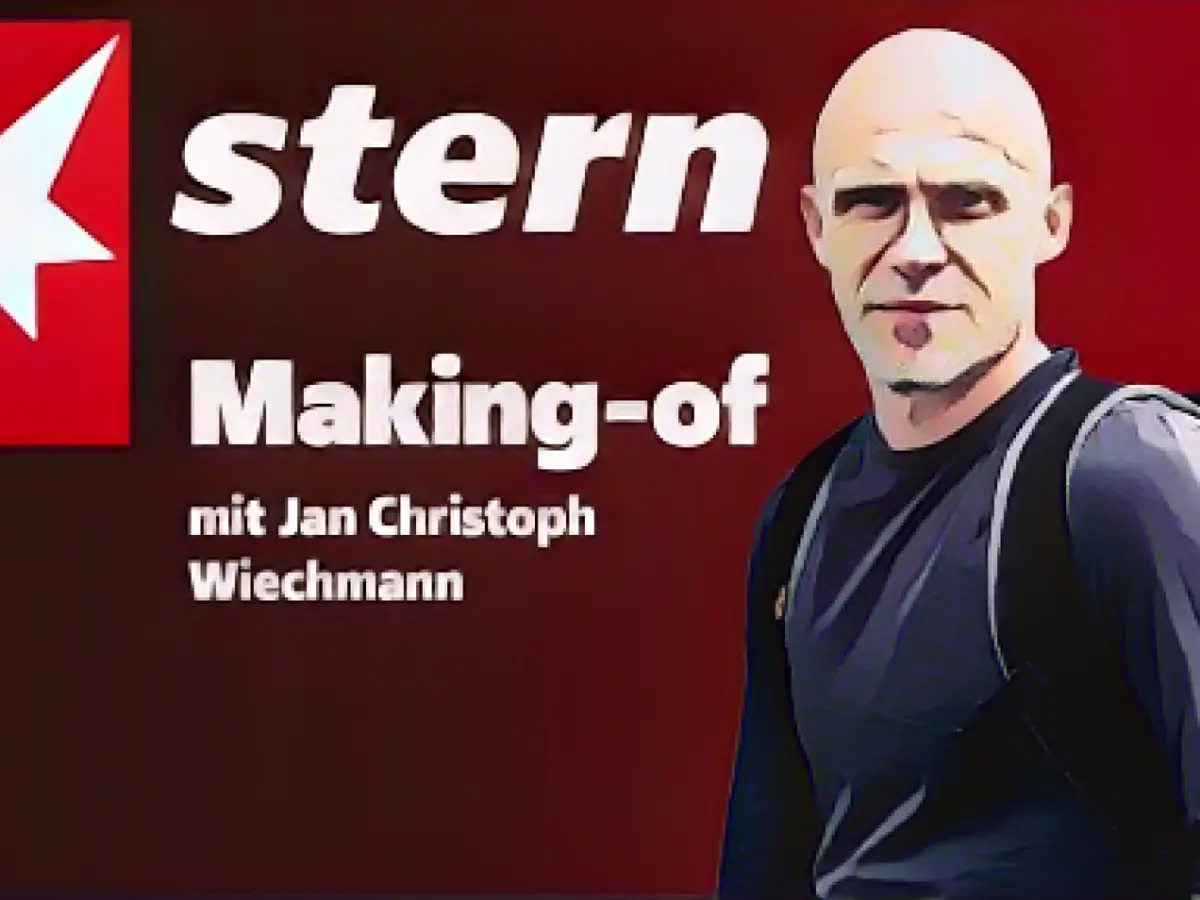Behind the story - Opioid crisis in the USA: Who is really responsible for the hundreds of thousands of deaths
Making-of is the name of our new format. We want to give you a personal look behind the scenes, tell you about our everyday journalistic work and our research. We are starting with a short series in which we look back on our moments in 2023.
I had been in the Kensington neighborhood of Philadelphia, the hotspot of the fentanyl epidemic in the US, for seven days when I had a somewhat eerie encounter at a kiosk on Allegheny Avenue. Three drug dealers, of which there are several hundred in Kensington, asked me: "What are you doing here?"
"I'm talking to people," I said.
"About what?"
"About life in Kensington, for a magazine from Germany."
Actually, I should have answered: About the many victims of this terrible drug epidemic. They're dying before your eyes and you're still selling them the kill shot.
"None of your business," they replied.
I said something like: "Isn't it sad that so many young people are dying here?"
"None of your business," hissed one.
"Get out of here", another - "get out"!
As a reporter, I've been to a number of crisis areas, Afghanistan, Iraq, Syria, but the drug gangs always seemed the most dangerous to me. Mainly because they are so unpredictable, so moody, so different. In El Salvador, family man Zeus, a local leader of the street gang Barrio 18, told me frankly and in detail how they had massacred dozens of their rivals, mainly from the notorious gang MS-13.
In Guerrero, Mexico, we were reporting on organized crime there when armed gang members, presumably the Guerreros Unidos, stopped us on the street and told us to leave the country immediately. They could only have found out about our presence from the local police.
In Colombia, I spent two weeks in the jungle with a unit of the Marxist guerrillas FARC, when I realized that they were more concerned with the lucrative drug trade than with the socialist revolution.
Drug traffickers in Latin America take on several roles at the same time
It's a bit complicated with drug traffickers in Latin America. They often switch sides. They are police officers, guerrillas, politicians, rappers and family men all at the same time.
I had a somewhat different kind of encounter in Brazil. I lived there for two years in a favela controlled by drug lords from the Comando Vermelho cartel. They see themselves as authoritarian rulers and even regulate marital conflicts, neighborhood disputes and curfews, laying down draconian laws such as: If you steal from a resident, you get your finger chopped off.
For me, the rule was: I was allowed to live in the favela, but not to report on the drug trade.
Once, two youths stopped me in my rental car not far from the favela with guns drawn, forced me to get out and drove off. Classic carjacking. Frightened, I told my landlord, who must have passed on the news. When I came back from the police station, where the officers showed very little interest in my robbery, my landlord was told by the gang leader: "The case has been solved. The car had been found intact, 50 kilometers away, in the north of Rio. I could pick it up.
I didn't dare ask what he had done with the robbers.
Hundreds of thousands of drug deaths, criminals in suits and a big lie
But the biggest drug gang I ever had to deal with was the Purdue pharmaceutical company owned by the Sackler family. They are the makers of Oxycontin, the opioid painkiller that addicted millions of Americans and, according to the NIH (National Institutes of Health), triggered the current opioid crisis that has killed more than 450,000 people. At the same time, the company paid millions in bribes to researchers and medical professionals who spread the word: The drug is completely harmless.
As a reporter, you could somehow talk to all the gangs, but not to the biggest drug gang in the world, the Sackler family. The opioid had made them multi-billionaires. They let it be known through PR agents that they had nothing to say and that they employed highly paid lawyers to deal with persistent reporters.
There are plenty of bad characters to deal with in reporting on drug wars, including the fentanyl hotspot of Kensington in Philadelphia, but none are as bad as the criminals in suits and lab coats. Legally, they've probably made more money and destroyed more lives with synthetic drugs than all of them put together - Sinaloa Cartel and Comando Vermelho, Barrio 18 and FARC, Guerreros Unidos and the small-time dealers of Philadelphia.
They saw me on Allegheny Avenue in Kensington many times during the stern research in the summer, but there were no more than scowls.
Read also:
- Year of climate records: extreme is the new normal
- Precautionary arrests show Islamist terror threat
- UN vote urges Israel to ceasefire
- SPD rules out budget resolution before the end of the year
- The opioid crisis in the USA, primarily fueled by fentanyl, has become a significant issue, with Kensington in Philadelphia being dubbed as its 'hotspot'.
- In Latin America, drug traffickers often hold multiple roles, such as politicians, guerrillas, and family men, making their operations more complex and challenging to address.
- The Sackler family, owners of Purdue Pharmaceuticals, are often referred to as the largest 'drug gang' due to their role in the production and distribution of Oxycontin, a highly addictive opioid that contributed to the current opioid crisis in the USA, resulting in over 450,000 deaths.
Source: www.stern.de








